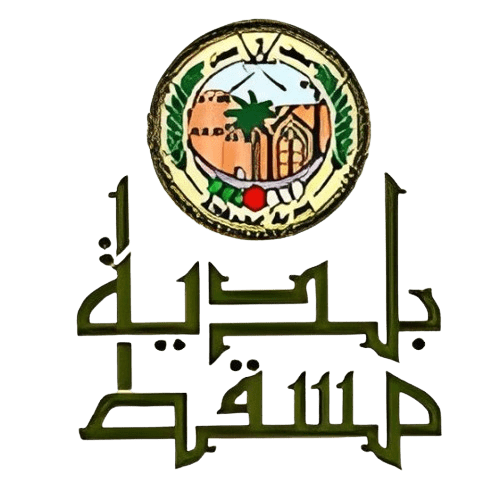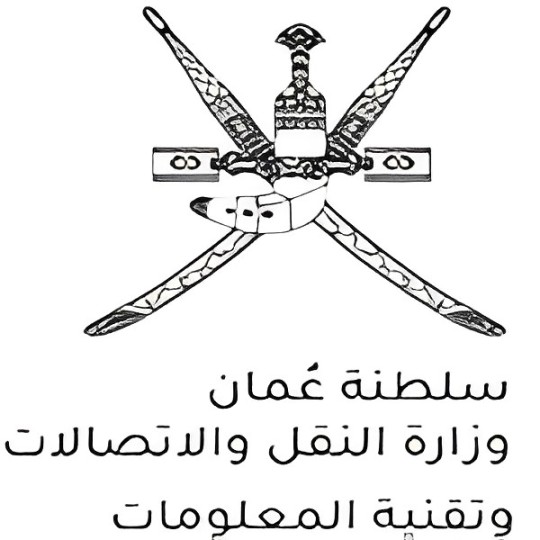+968 9596 3381
Phone Number
[email protected]
Email Address
Mon - Thu: 8:00 - 5:00
Online store always open
Phone Number
Email Address
Online store always open
WhatsApp Us Today
Drop Us an Email Today
Google Map Location
Saturday to Thursday
Financial transparency and regulatory compliance are core pillars of doing business in Oman. All companies operating in the Sultanate — from SMEs to large enterprises — are required to maintain proper accounting records and prepare financial statements that align with international standards.
This guide outlines the financial reporting obligations for companies in Oman, the use of International Financial Reporting Standards (IFRS), audit requirements, and compliance practices mandated by the Oman Tax Authority (OTA) and the Ministry of Commerce, Industry and Investment Promotion (MoCIIP).

In the dynamic business landscape of the Sultanate of Oman, robust and transparent financial reporting is not merely a best practice; it is a fundamental pillar of corporate governance, investor confidence, and regulatory compliance. As Oman continues its journey towards economic diversification and global integration under Oman Vision 2040, adherence to internationally recognized financial reporting standards has become paramount for companies operating within its borders.
Oman has firmly embraced International Financial Reporting Standards (IFRS) as the mandatory framework for preparing financial statements across most of its corporate entities. This commitment to global standards ensures consistency, comparability, and reliability of financial information, essential for attracting foreign direct investment, facilitating access to finance, and fostering a healthy business environment. For both newly established ventures and existing enterprises, understanding the specific requirements, regulatory bodies, and compliance obligations associated with IFRS in Oman is crucial. This comprehensive guide will detail the financial reporting standards, audit requirements, and submission processes for Omani companies, illustrating how Setup in Oman can be your trusted partner in achieving impeccable financial compliance.
Financial reporting in Oman is governed by a well-defined regulatory framework, ensuring adherence to high standards of transparency and accountability. Several key authorities oversee and enforce these requirements:
Ministry of Commerce, Industry, and Investment Promotion (MoCIIP): This is the primary governmental body responsible for company registration, commercial laws, and overseeing general corporate governance. The MoCIIP mandates that companies submit their annual financial statements, ensuring compliance with the Commercial Companies Law (Royal Decree 18/2019).
Capital Market Authority (CMA): For publicly listed companies on the Muscat Stock Exchange (MSX), the CMA is the principal regulator. It sets stringent rules for financial reporting, disclosure, and auditing, demanding strict adherence to IFRS to protect investors and maintain market integrity.
Oman Tax Authority (OTA): The OTA requires companies to submit annual financial statements as a basis for assessing Corporate Income Tax liabilities and ensuring tax compliance under the Income Tax Law (Royal Decree 28/2009).
Central Bank of Oman (CBO): Regulates financial institutions (banks, insurance companies) and issues specific prudential and financial reporting directives that align with IFRS.
Sultanate of Oman Auditor Registration Committee (ARC): Responsible for regulating the auditing profession and licensing auditors in Oman, ensuring the quality and independence of audits.
These bodies collectively ensure that companies prepare and submit financial statements that accurately reflect their financial performance and position, in line with established international norms.
Yes. All registered companies in Oman are required to prepare annual financial statements that reflect their financial performance and position.
This applies to:
Limited liability companies (LLCs)
Joint-stock companies (SAOG & SAOC)
Sole proprietorships with commercial activity
Foreign company branches
Micro and small businesses may have simplified requirements, but financial recordkeeping is still mandatory for tax purposes.
Oman has fully adopted the International Financial Reporting Standards (IFRS). All medium and large enterprises are required to:
Prepare annual financial statements in accordance with IFRS
Maintain records that accurately reflect revenues, expenses, assets, and liabilities
Use IFRS-compliant accounting software and systems
Smaller companies and SMEs may use simplified formats, but aligning with IFRS is increasingly encouraged even at the lower end to ease audit and tax filing.
Typical IFRS-compliant statements required in Oman include:
Statement of Financial Position (Balance Sheet)
Statement of Profit and Loss (Income Statement)
Cash Flow Statement
Statement of Changes in Equity
Notes to the Financial Statements
These documents must reflect fair presentation and are often required in both Arabic and English for regulatory purposes.
Most companies in Oman are subject to annual audits by licensed, independent auditors. Especially for:
LLCs with capital above OMR 50,000
Public joint-stock companies (SAOG)
Foreign company branches
Companies applying for loans or tenders
Audit reports must accompany financial statements submitted to:
Oman Tax Authority (OTA) for tax compliance
MoCIIP for commercial license renewals
Startups and micro-enterprises may be exempt, depending on turnover and company type.
Oman mandates strict timelines for financial reporting:
Financial Year-End: Typically December 31 (unless otherwise specified)
Tax Return Filing Deadline: Within 6 months of the end of the financial year
Audit Report Submission: Should align with the tax filing and commercial license renewal schedules
Missing deadlines can result in penalties, fines, and even license suspension.
All businesses must:
Maintain accurate records of income, expenses, payroll, inventory, and contracts
Retain financial documents for a minimum of 10 years
Use accounting systems that ensure traceability and transparency
Keep physical or digital copies that can be reviewed during inspections or audits
For tax purposes, all revenue-generating entities must be able to justify reported income and expenses with invoices, receipts, and supporting documentation.
Oman’s commitment to global best practices in financial transparency is clearly demonstrated by its adoption of International Financial Reporting Standards (IFRS) as its core accounting framework.
International Financial Reporting Standards (IFRS):
Mandatory Adoption: IFRS, as issued by the International Accounting Standards Board (IASB), is the mandatory financial reporting standard for virtually all companies in Oman. This includes:
Publicly listed companies on the Muscat Stock Exchange (MSX).
Private Limited Liability Companies (LLCs).
Joint Stock Companies (JSCs).
Branches of foreign companies operating in Oman.
Partnerships and other legal entities that require an annual audit.
Benefits: Adopting IFRS enhances the comparability of Omani financial statements with those prepared globally, which is crucial for international investors, multi-national corporations, and businesses seeking foreign financing. It promotes transparency and reduces information asymmetry.
IFRS for SMEs (Small and Medium-sized Entities):
While the general mandate is for full IFRS, IFRS for SMEs is a simplified version of IFRS designed for smaller, non-publicly accountable entities. Its applicability for Omani SMEs can vary based on specific regulations or the nature of the entity. Some local practices and guidance may allow or encourage its use for companies meeting certain thresholds, though many SMEs in Oman still opt for full IFRS due to its broader acceptance and less ambiguity. It is best practice to clarify the specific version of IFRS applicable to your company’s size and structure with a local expert.
Local Regulations and Interpretations: While IFRS forms the backbone, local Omani laws (like the Commercial Companies Law) and specific CMA or CBO directives may introduce additional disclosure requirements or interpretations pertinent to the Omani context. However, these generally complement, rather than contradict, the core principles of IFRS.
The requirement to prepare IFRS-compliant financial statements and undergo an audit applies broadly across various Omani corporate structures:
Publicly Listed Companies (Muscat Stock Exchange): Mandated by the CMA to strictly adhere to full IFRS, with extensive disclosure requirements.
Private Limited Liability Companies (LLCs): All LLCs in Oman are generally required to prepare financial statements in accordance with IFRS and undergo an annual audit, regardless of size.
Joint Stock Companies (JSCs): Both SAOG (public) and SAOC (closed) joint stock companies must comply with IFRS and have their financial statements audited.
Branches of Foreign Companies & Permanent Establishments (PEs): These entities operating in Oman must also prepare financial statements that comply with IFRS and undergo an audit, particularly for tax purposes.
Partnerships: Certain types of partnerships, especially those with significant capital or turnover, may also be subject to audit and IFRS compliance.
Sole Proprietorships (“Establishments”): While often having simpler reporting requirements, they still need to maintain robust financial records for tax purposes. If their income is subject to Corporate Income Tax (e.g., expatriate sole proprietors, or Omani SMEs below the PIT threshold), proper accounting records aligned with IFRS principles (even if not a full-blown IFRS audit for very small ones) are essential.
Compliance with Omani financial reporting standards involves several core components:
Preparation of Financial Statements: Companies must prepare a complete set of financial statements annually, which typically includes:
Statement of Financial Position (Balance Sheet): Presents the company’s assets, liabilities, and equity at a specific point in time.
Statement of Comprehensive Income: Shows the company’s financial performance over a period, comprising profit or loss and other comprehensive income.
Statement of Changes in Equity: Details the changes in equity during the reporting period.
Statement of Cash Flows: Summarizes the cash generated and used by the company from operating, investing, and financing activities.
Notes to the Financial Statements: Provide additional information and explanations, including accounting policies, significant judgments, and disaggregated data, which are integral to understanding the financial statements.
Audit Requirements:
Mandatory Annual Audit: Most companies (LLCs, JSCs, branches, and larger partnerships) are legally required to undergo an annual independent external audit.
Licensed Auditors: The audit must be performed by an audit firm or individual auditor who is licensed and registered with the MoCIIP and the Sultanate of Oman Auditor Registration Committee (ARC).
Audit Scope: The audit aims to express an opinion on whether the financial statements are prepared, in all material respects, in accordance with IFRS and the relevant Omani laws.
Submission Deadlines:
Oman Tax Authority (OTA): Audited financial statements must be submitted along with the annual tax return within six months of the company’s financial year-end. (Provisional returns are due within 3 months).
Ministry of Commerce, Industry, and Investment Promotion (MoCIIP): Companies typically submit their audited financial statements to the MoCIIP as part of their annual compliance, often linked to the requirements for holding Annual General Meetings (AGMs) within a specified period (e.g., 6 months from year-end).
Capital Market Authority (CMA): Listed companies have more frequent and stringent reporting deadlines (e.g., quarterly, semi-annually, and annually), all requiring compliance with CMA regulations and IFRS.
Language: While Arabic is the official language for government submissions, financial statements are widely prepared and accepted in English.
Record-Keeping: Companies are legally obliged to maintain all accounting records, supporting documentation, and financial statements for a minimum of 10 years for tax purposes.
Adherence to Omani financial reporting standards and audit requirements is not just a bureaucratic hurdle; it offers significant benefits:
Legal Obligation & Penalty Avoidance: Non-compliance can lead to substantial fines, legal repercussions, and even suspension of commercial registration.
Attracting Investment: Transparent, IFRS-compliant financial statements build trust with potential investors (local and international) and partners, making the company more attractive for capital infusion.
Access to Financing: Banks and financial institutions in Oman require audited financial statements to assess creditworthiness for loans and other financing.
Enhanced Credibility & Governance: Robust reporting demonstrates good corporate governance, improving the company’s reputation among stakeholders, customers, and suppliers.
Informed Decision-Making: Accurate financial data provides management with critical insights for strategic planning and operational efficiency.




Navigating the complexities of financial reporting and audit requirements in Oman can be daunting for new entrants and established businesses alike. Setup in Oman offers crucial services that indirectly and directly support your financial compliance journey:
Company Formation: The very foundation of your financial reporting journey begins with legal establishment. Our Company Formation services ensure your Omani entity is correctly structured and registered with MoCIIP, setting the stage for all subsequent financial and tax compliance, including IFRS adherence and audit obligations.
Corporate Bank Account: Accurate financial reporting hinges on transparent and traceable financial transactions. Our assistance in opening your corporate bank account in Oman provides the essential framework for all your company’s financial inflows and outflows, facilitating meticulous record-keeping necessary for IFRS-compliant statements.
PRO Services & Compliance Management: Timely submission of audited financial statements to the MoCIIP and Oman Tax Authority is a critical compliance requirement. Our comprehensive PRO services extend to managing these regulatory filings on your behalf, ensuring your company meets all deadlines and avoids penalties. We act as your liaison with government bodies for annual submissions.
Accounting & Audit Referral : While Setup in Oman focuses on company establishment and PRO services, we understand the absolute necessity of expert accounting and auditing for IFRS compliance. We can connect you with a network of trusted, MoCIIP-licensed external audit firms and professional accountants in Oman who specialize in IFRS implementation, financial statement preparation, and annual audits, ensuring your financial reporting is accurate and compliant.
Investor Visa & Work Visa: For business owners and key financial personnel responsible for overseeing financial reporting and audit processes in Oman, securing legal residency is paramount. Our Investor Visa and Work Visa services ensure that your team members can reside and work legally in the Sultanate, facilitating seamless management and oversight of your company’s financial compliance.
Complexity of IFRS: For smaller companies or those new to IFRS, understanding and applying all standards can be challenging. Seeking expert accounting advice is vital.
Finding Qualified Auditors: Ensuring your auditor is reputable, licensed, and knowledgeable about both IFRS and Omani regulations is crucial.
Data Integrity: Robust internal controls and reliable accounting software are essential for collecting and processing accurate financial data.
Timely Reporting: Proactive planning for year-end closing and audit completion is necessary to meet strict regulatory deadlines.





Need help preparing your annual financial statements or setting up proper accounting systems? Our team of chartered accountants and tax experts in Oman can help.
The OTA closely monitors business financial reporting for tax accuracy. Key responsibilities include:
Verifying the validity of financial reports submitted
Conducting tax audits and assessments
Penalizing misreporting or tax evasion
Providing e-filing portals for digital return submissions
Properly prepared financial statements form the basis for corporate tax filings in Oman.
Oman permits certain small and medium enterprises (SMEs) to adopt IFRS for SMEs, a simplified framework for financial reporting.
Benefits:
Easier to apply than full IFRS
Less complex disclosures and recognition rules
Accepted by auditors and regulatory bodies
Eligibility depends on factors such as annual turnover, number of employees, and capital base.
Even if a company operates within Omani free zones (e.g., Salalah, Sohar, Duqm), financial reporting is still required. These entities must:
Prepare IFRS-compliant reports annually
Submit tax filings to the OTA if they engage with the mainland economy
Comply with any specific audit requirements from the free zone authority
Free zone tax exemptions do not eliminate the need for financial records and compliance.
Delayed preparation of annual accounts
Misreporting revenue or not recognizing it properly
Lack of supporting documentation for expenses
Using outdated accounting standards
Failure to reconcile VAT filings with revenue reports
These issues may lead to tax reassessments, penalties, or business license issues.
Oman is encouraging digital transformation in financial reporting. Many businesses are now:
Adopting cloud-based accounting software
Using e-invoicing systems for compliance
Automating payroll and tax calculations
Integrating systems with OTA’s digital tax portal
This shift enhances compliance, accuracy, and audit-readiness — especially for companies managing remote teams or cross-border operations.
It’s highly recommended that companies partner with:
Certified accountants or accounting firms
IFRS consultants (especially during first-time adoption)
Tax advisors to align reports with OTA expectations
Auditors approved by Oman’s regulatory authorities
Many businesses outsource their monthly bookkeeping and reporting functions to ensure full compliance.
Are all companies in Oman required to prepare financial statements?
Yes, all legal entities must maintain proper accounting records and prepare financial statements annually.
What accounting standards are used in Oman?
Oman follows International Financial Reporting Standards (IFRS).
Is audit mandatory for every company?
Audit is required for medium and large companies, foreign branches, and firms with certain capital thresholds.
Can startups use simplified reporting standards?
Yes, some startups and SMEs can use IFRS for SMEs, subject to eligibility.
What happens if I don’t file financial statements?
Penalties, tax reassessments, and even suspension of your commercial license may occur.
How long do I need to retain financial records?
Minimum of 10 years, as required by the Oman Tax Authority.
Financial reporting in Oman is more than a formality — it’s a vital part of business transparency, tax compliance, and long-term success. With IFRS as the mandated standard, businesses must ensure their records, accounting systems, and internal controls are aligned with best practices.
Whether you’re a local startup, a growing SME, or a multinational operating in Oman, staying compliant with financial reporting laws is essential to avoid regulatory setbacks and strengthen your financial credibility.
Need help preparing your annual financial statements or setting up proper accounting systems? Our team of chartered accountants and tax experts in Oman can help.
Fill out our quick and easy contact form below. Briefly tell us about your vision and goals, and we’ll be in touch shortly to discuss a personalized plan for your success.
Al-Khuwair, Muscat, Sultanate of Oman